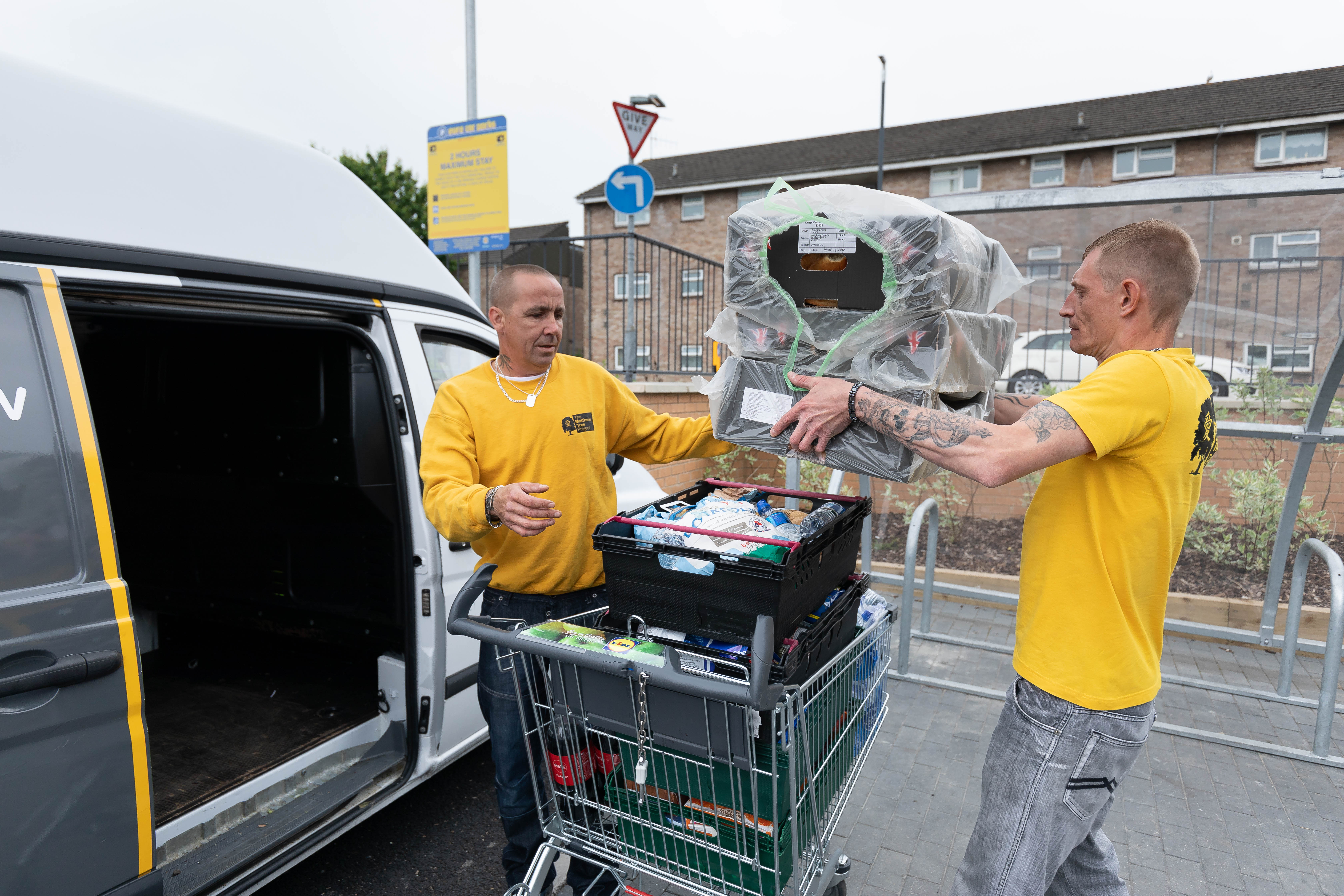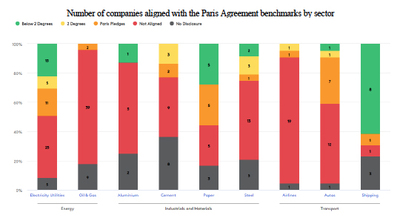The Transition Pathway Initiative (TPI) annual review has found little evidence of corporate climate progress with more than 80 per cent of the highest-emitting listed companies remaining off track for to deliver a lower than 2C temperature increase.
Although 29 per cent of companies have improved their governance of climate-related risks, and across all sectors, average emissions intensity is falling by 1.9 per cent annually, the rates of reduction is too low.
The TPI’s annual State of Transition report assesses 238 energy, industrial and transport companies on their projected emissions intensity or ‘carbon performance’. It finds that 43 companies (18 per cent) have emissions trajectories in line with limiting climate change to with Daimler and Shree Cement among the companies to have come into alignment since last year.
Faith Ward, co-chair of TPI and Chief Responsible Investment Officer at Brunel Pension Partnership, said: “The IEA has warned that, while carbon emissions will likely decline this year, in the medium term the coronavirus outbreak could slow down the low carbon transition, as green investments are put on hold by cash-strapped governments and businesses. It is therefore of deep concern that so few companies were on the right path before the virus struck. Investors must use their influence to ensure that climate commitments are not discarded in the face of financial pressures.”
There is also some doubt that the EU’s Green Deal will be fully realised due to the virus outbreak, adding to the need for companies to put their own houses in order themselves.
Electric utilities and paper companies with2025 targets are reducing their emissions intensity by approximately 4 per cent per year. Continuing on the same pathway would more than deliver companies’ 2025 targets. But oil and gas companies with 2025 targets are not currently reducing emissions intensity fast enough to meet their targets. For steel and cement companies with 2025 targets, current emissions intensity is actually rising, casting serious doubt over whether their targets can be met.
Latest News
-
Private health provider awards £10,000 to arthritis research team
-
Building Society hands out £1m to tackle inequality
-
Premier League and Comic Relief partnership aims to improve children’s mental health
-
Russell Hobbs launches food poverty campaign in schools
-
Tottenham Hotspur and charities launch film to tackle mental health stigma
-
Cardfactory funds homelessness charity’s team of psychologists
© 2019 Perspective Publishing Privacy & Cookies







Recent Stories